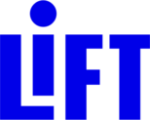Hope, money, love.
I came across these three words on my first day at LIFT. If not for the fact that they were mounted on the wall in eye-catching neon lights, I might have overlooked them. At first glance, they were seemingly uncomplicated. Throughout the day, however, as I met with various members of the LIFT team, I encountered more complex variations of hope, money, and love in my conversations. Beyond the simplistic meaning that I initially associated with these words, hope, money, and love are all critical components of the human experience. When combined, they possess the capacity to change the course of an individual life. When combined, they provide the basic tools necessary for success in modern society. When combined, hope, money, and love serve as the backbone of LIFT’s mission to break the cycle of intergenerational poverty.
For many individuals, poverty is a problem of the inner city or developing world. If you can’t see the issue, it doesn’t exist. Admittedly, I often force the issues of poverty to the back of my mind. However, after moving to Boston for college, this issue became impossible to ignore. Despite my unfamiliarity with the irregular schedule of a college student and the dynamic weather patterns of the Northeast, one of the most prominent differences in this new environment was the stark display of poverty located just beyond the gates of the picturesque campus I now called home. A stone’s throw away from the historic red brick buildings that housed the likes of Bill Gates and JFK, dozens of individuals are unable to secure stable sources of income or maintain a roof over their heads. The dichotomy between the wealthiest institution of higher education in the world and the destitution of the surrounding population is ironic and, unfortunately, not uncommon. However, as much as I want to be a crusader in the fight against chronic poverty, I often feel helpless. After all, how much of an impact can a single 20-year-old college student make when there are currently over 43 million individuals living in poverty in the United States alone?
Now, I want to go back to those three words that caught my attention that first day at LIFT- hope, money, and love. More often than not, poverty is perceived to be simply the lack of economic resources. Just as I viewed hope, money, and love as three simple words, many people assume that poverty and its solutions are as equally uncomplicated. If only it were that easy. Individuals living in poverty suffer from social and emotional setbacks, such as smaller and less supportive social networks and incessant anxiety and despair. As powerful as hope, money, and love can be, their absence is significantly detrimental.
To address this negative combination of factors, LIFT approaches poverty, not from a purely economic standpoint, but from a multi-faceted perspective that incorporates these social and emotional components as well. At LIFT, members are not defined by their economic status. They are simply people who deserve to be treated with respect and dignity, a convention that is often deprived of those living in poverty. Instead of assuming the needs of a population, LIFT approaches poverty from a humanistic perspective, empowering members with, for perhaps the first time, the prospect of hope, money, and love.
Over the course of the next ten weeks, I know that I will make mistakes, but I am also certain that, with the support of the LIFT team, I will have the opportunity to succeed and, hopefully, find some answers to my existential question of how I, as an individual, can make an impact. From that first day, I already have some ideas. At LIFT, progress and development are possible because of the hope and love, the respect and genuine human kindness, engrained in its mission and action. From members to interns, all individuals are treated with this same degree of respect. Perhaps, as an individual, our greatest impact comes, not in the form of monumental projects or campaigns, but in how we treat one another. After all, in the slightly-altered words of Dr. Seuss, “A person’s a person, no matter how [economically] small.”
This blog post was written by Amalia Frohna, a 2018 summer intern at LIFT’s national office.
